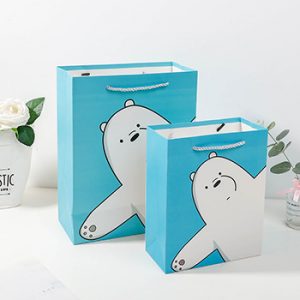Paper bags are considered more sustainable than plastic bags due to several environmental benefits. Here are some key sustainability factors that make paper bags a preferable option:
- Biodegradability: Paper bags are made from natural fibers, primarily wood pulp from trees. They are biodegradable, meaning they can decompose naturally over time, minimizing their impact on the environment.
- Renewable resource: The primary raw material for paper bags is wood, which comes from trees. Trees are a renewable resource, and responsible forestry practices involve planting new trees to replace those used for paper production.
- Reduced litter and pollution: Compared to plastic bags, paper bags are less likely to become persistent litter in the environment. If paper bags are improperly discarded, they will break down much faster than plastic, reducing the risk of long-term pollution.
- Lower carbon footprint: The production of paper bags typically involves less energy consumption and fewer greenhouse gas emissions compared to plastic bag production. Additionally, advancements in sustainable forestry practices and energy-efficient manufacturing processes further reduce the environmental impact.
- Recyclability: Paper bags are easily recyclable in many recycling programs. The recycled paper can be used to make new paper products, reducing the demand for virgin wood pulp and extending the life cycle of the materials.
- Compostability: If a paper bag is free from any non-compostable coatings or inks, it can be composted along with organic waste, contributing to nutrient-rich soil for gardening.
- Source of raw materials: The demand for paper bags supports the forestry industry, which encourages responsible forest management and the expansion of forested areas.
- Plastic reduction: By choosing paper bags over plastic bags, consumers and businesses can help reduce the consumption and production of single-use plastic, which is a significant contributor to plastic pollution in the environment.
- Sustainability certifications: Some paper bags carry sustainability certifications, such as Forest Stewardship Council (FSC) or Sustainable Forestry Initiative (SFI) labels, which indicate that the paper comes from responsibly managed forests.
While paper bags have many sustainability advantages, it’s essential to consider the entire life cycle of the bags. This includes factors such as transportation, disposal methods, and the potential use of recycled content in manufacturing. Additionally, encouraging responsible consumption, proper recycling, and composting practices can further enhance the sustainability of paper bags and contribute to a more eco-friendly approach to packaging and carrying goods.













